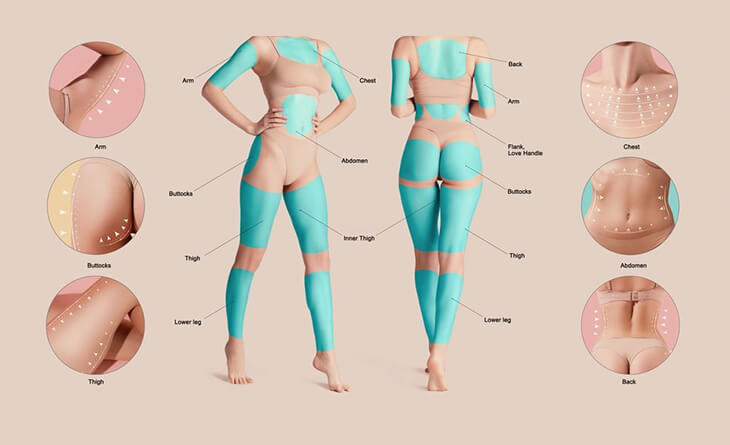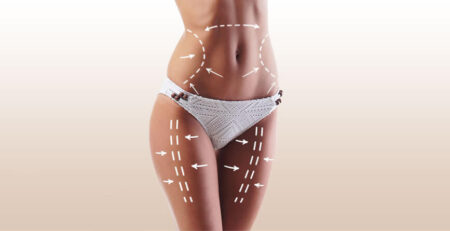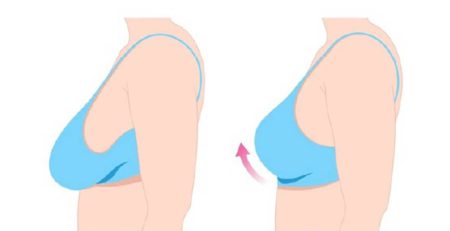Is Liposuction Considered a Surgery?
Liposuction surgery in Delhi is a well-known procedure to remove stubborn fat deposits that are resistant to diet and exercise. However, there’s often confusion about whether liposuction is considered a surgery and what it entails. In this guide, we’ll delve into the details of liposuction surgery, the areas it can treat, and the importance of choosing a skilled surgeon.
What is Liposuction?
Liposuction surgery, often simply referred to as liposuction, is a cosmetic procedure that involves removing excess fat from specific body areas. The process helps contour and shape the body by targeting fat deposits that don’t respond well to traditional weight loss methods. The procedure is typically performed under general or local anesthesia, depending on the extent of the fat removal and the areas being treated.
During the liposuction surgery, a surgeon makes small incisions in the skin and inserts a thin tube called a cannula. This cannula is connected to a vacuum that suctions the fat out of the body. Liposuction can reduce fat in targeted areas, leading to a more streamlined and aesthetically pleasing body contour. However, it’s important to note that liposuction is not a weight-loss solution but rather a body contouring procedure.

What All Body Areas Can Be Treated with Liposuction?
Liposuction surgery can target various areas of the body where fat tends to accumulate. Here are the body parts you can treat with liposuction for a better appearance:
Abdomen: One of the most popular areas for liposuction, helping to achieve a flatter stomach. This area often holds stubborn fat that doesn’t buzz even with the hardest exercises.
Thighs: Both inner and outer thighs can be contoured for a slimmer appearance. Many people opt for liposuction on their thighs to reduce the appearance of saddlebags or achieve a more toned look.
Hips and Buttocks: Liposuction surgery reduces the “love handles” and reshapes the buttocks. This area can significantly enhance one’s silhouette and contribute to a more balanced body shape.
Arms: This procedure targets excess fat in the upper arms. People often seek liposuction in this area to address flabby arms and achieve a more toned appearance.
Back: This procedure addresses fat rolls in the upper and lower back. Liposuction can smooth out the back area, reducing the appearance of bra bulges or back rolls.
Chest: Can be used to treat gynecomastia (enlarged male breasts). This procedure is common for men who want a more masculine chest contour.
Chin and Neck: Liposuction surgery can improve the neck’s contour and reduce the appearance of a double chin. Procedures in this area can give you a slimmer face and a more prominent jawline.
Why is Liposuction Called a Surgery?
Liposuction is considered a surgery for several reasons:
Invasiveness: The liposuction surgery involves making small incisions in the skin through which a cannula (a thin tube) is inserted to suction the fat. Although the incisions are small, it is still an invasive procedure. The process requires precision and careful handling to avoid complications and achieve the desired results.
Anesthesia: Liposuction requires anesthesia, which can be local, regional, or general, depending on the extent of the surgery and patient preference. Using anesthesia ensures that the patient remains comfortable and pain-free during the procedure.
Recovery Time: Like any surgical procedure, liposuction surgery involves a recovery period during which patients may experience swelling, bruising, and discomfort. Post-operative care is essential to ensure proper healing. Patients are usually advised to wear compression garments to reduce swelling and support the healing tissues.
Potential Risks: As with any surgery, liposuction carries risks such as infection, bleeding, and adverse reactions to anesthesia. A skilled surgeon is essential to minimize these risks. Additionally, patients must follow post-operative care instructions meticulously to avoid complications and ensure a smooth recovery.

Why is It Important to Get the Procedure Done by A Surgeon and Not a Doctor?
Choosing a qualified surgeon for your liposuction surgery is crucial for several reasons:
Expertise and Training: Surgeons, particularly those certified in cosmetic procedures, are required to undergo rigorous practices and training in the medical and aesthetic aspects of procedures. This ensures a higher level of expertise and skill. A qualified surgeon understands the human body’s complexities and can give you a personalized solution that caters to your actual needs.
Safety: Surgeons are trained to handle challenges that may arise during or after the surgery, ensuring your safety. They have the knowledge and experience to manage any unexpected issues.
Aesthetic Results: A skilled surgeon can achieve more precise and aesthetically pleasing results, sculpting your body to meet your goals. They can create a natural-looking contour that enhances your overall appearance.
Post-Operative Care: Surgeons provide comprehensive post-operative care instructions and follow-up visits to help you be more careful about recovery and ask as many questions as you want. This ongoing care is crucial for achieving the best possible outcomes and maintaining your health and well-being.
Why to Avoid the Low-Cost Options for Liposuction Surgery?
While the idea of saving money on liposuction surgery might be tempting, opting for low-cost options can be risky:
Quality of Care: Low-cost providers may cut corners on important aspects of the procedure, such as using outdated equipment or not adhering to strict hygiene standards, which can compromise your safety. It’s important to prioritize your health and well-being over cost.
Experience: Cheaper options might involve less experienced practitioners who may not have the same training or expertise as certified surgeons. An inexperienced practitioner may not achieve the desired results and could cause harm.
Risk of Complications: Poorly performed liposuction surgery procedures in Delhi, can lead to complications such as uneven fat removal, excessive scarring, or even more serious health issues. Selecting a surgeon with a testified record of high patient satisfaction is essential.
Revision Surgery: If the initial procedure is not performed correctly, you might need additional surgeries to correct the issues, leading to higher overall costs and prolonged recovery time. Investing in a qualified surgeon can save you time, money, and stress in the long run.
Consider Liposuction Surgery for a More Confident You!
Liposuction surgery is a valuable tool for achieving the desired body contouring result; however, it is a surgical procedure that requires expertise and preparation. If you’re considering liposuction, ensure you prioritize safety and quality over cost to achieve the best possible results.
Those in New Delhi should consider consulting Dr. Lokesh Handa at Med Esthetiks. Dr. Handa is a board-certified and experienced plastic surgeon specializing in liposuction and other cosmetic procedures. Hiqualificationsns, experience and credentials allow patients to get the highest quality treatment and achieve the body contouring result they desire. Book your call to see yourself transforming into a better version of yourself.

Dr. Lokesh Handa
M.S, M.Ch
Sr Consultant Plastic, Aesthetic and
Hair Transplant Surgeon
Dr. Lokesh Handa, a board-certified plastic surgeon with over 15 years of experience, holds esteemed titles of M.S. and M.Ch. He serves as a Senior Consultant in Plastic, Aesthetic, and Hair Transplant Surgery.
As the Director of Med Esthetiks, his commitment to excellence is evident. Dr. Lokesh Handa is a distinguished member of renowned organizations, including ISAPS (International Society of Aesthetic Plastic Surgeons), APSI (Association of Plastic Surgeons of India), and IAAPS (Indian Association of Aesthetic Plastic Surgeons). With extensive expertise, he blends precision and artistry, offering unparalleled care in the realm of plastic surgery and contributing significantly to the advancement of aesthetic practices.
To book an appointment, call: +91-8800203431 or email: care@medesthetiks.com











